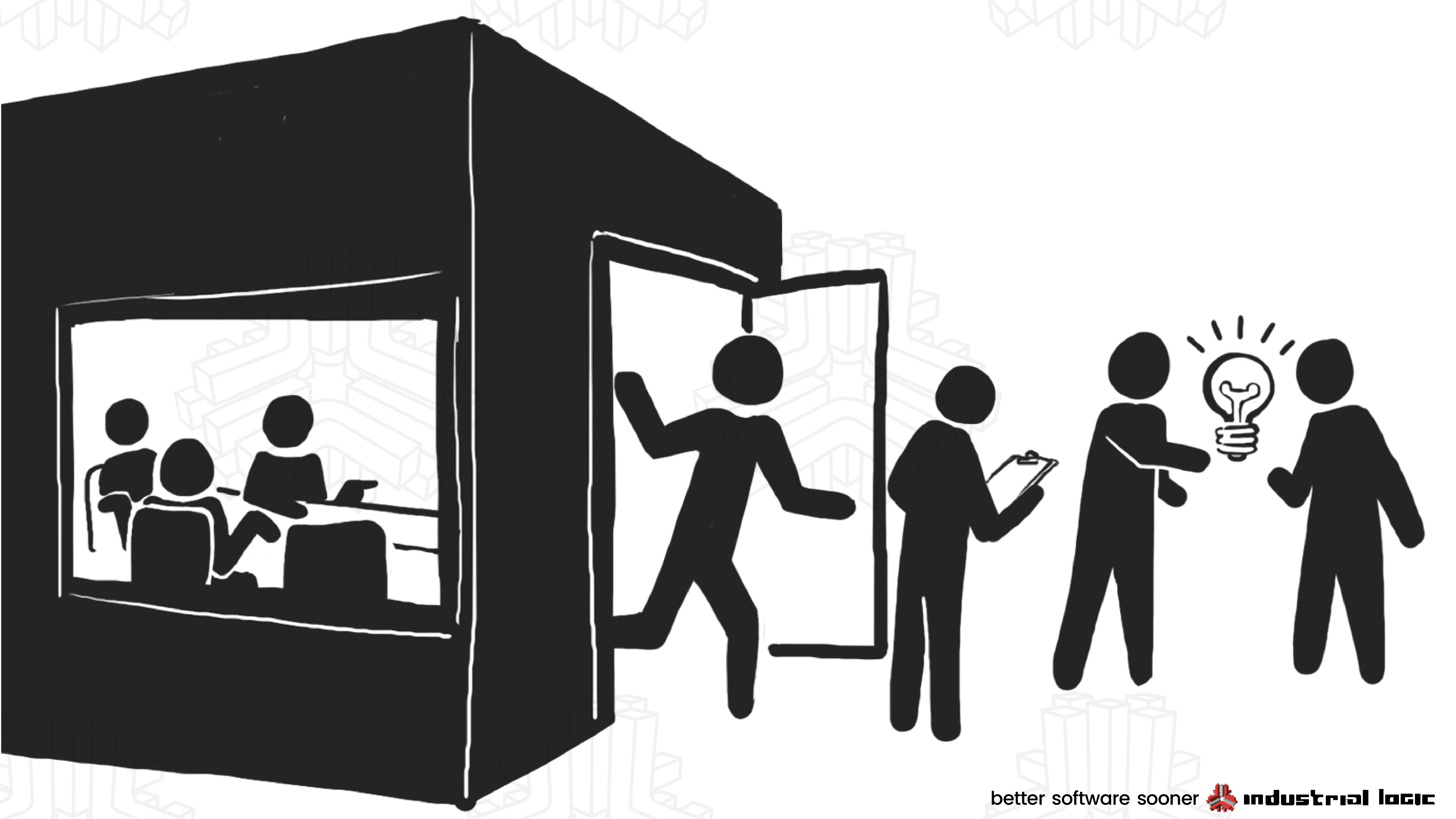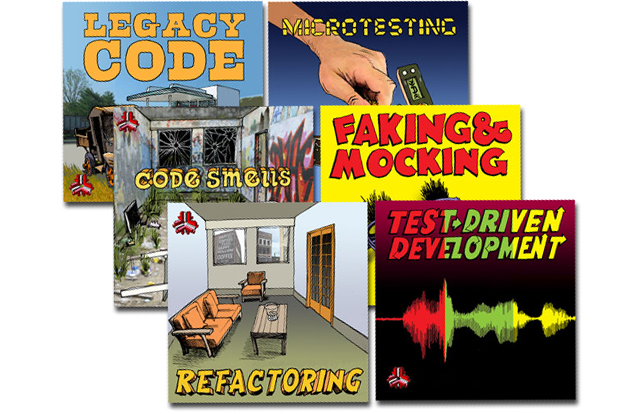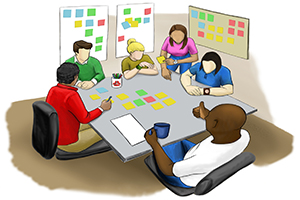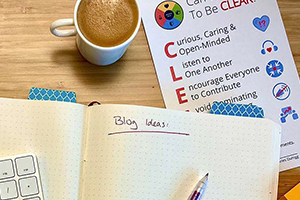“We don’t want a meeting!” This was my response when a team I was working on was told that someone from the UI team would be able to meet with us for an hour “sometime tomorrow.”
“We don’t want a meeting” I repeated, “ We want a Doing.” As part of a high performing team we know working in highly collaborative ways, like pairing and ensemble programming, allows us to clear out the things that would slow us down.

Practices like asynchronous communication with other teams (through email, manager “telephone”, or meetings followed by more meetings) cause teams to sit and wait for information. This is a waste of both time and money.
A big part of the Fluid Scaling Technology (FaST-Agile) practices is to remove dependencies that would otherwise slow teams down. FaST promotes A Bias Towards Action that will enhance value delivered at a more rapid pace.
When we have a dependency on another team, the best and easiest way to integrate knowledge and work is to have a Doing. Bring all the important people together to work on the important work, at the time the work is being done.
In this case above, we asked for someone from the UI design team to come sit with us while we worked. This would allow us to get immediate feedback on our work and answers to our questions, without adding the gate of an email chain to our work processes.
Instead of sitting around talking about issues and design, we shared our code, demoed the current functionality and got (and gave) feedback. Instead of scheduling another meeting, we agreed on a regular weekly time of working with them. When they were with our team, we tried to work in areas that were directly related to the UI and its design, so that we used their time effectively.
It works for teams that are dependent on us as well. We have mobbed with developers on other teams to make sure API contracts are working as designed and understood to both. This cuts out unnecessary rework and miscommunication, so that both teams can move forward sooner. No meetings, just Doings.
Doing work with members of other teams you are dependent on is far more effective, and allows you to work much more rapidly than a meeting, or an email chain. It fosters communication and collaboration with the other teams. It promotes trust, empathy, and understanding. Cross-team knowledge grows.
Next time someone wants to schedule a meeting to talk about how your teams are working together, suggest that instead you actually do some work together.




